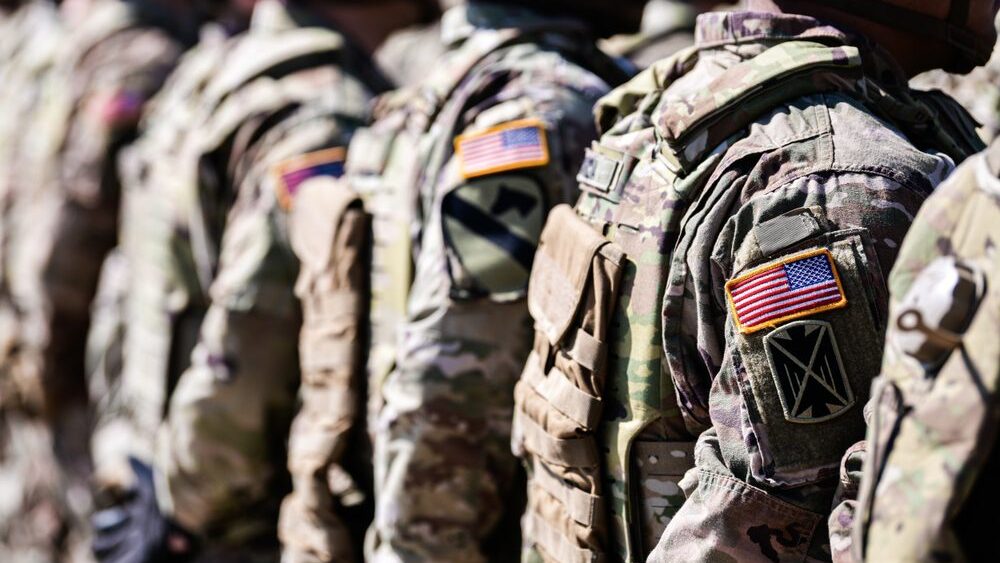
Sweden and the United States have signed a new deal that will grant the United States Armed Forces access to over a dozen military bases and facilities across the country as Sweden’s NATO bid continues to be delayed.
The agreement was announced this week after it was signed by U.S. Secretary of Defense Lloyd Austin and Swedish Minister for Defence Pål Jonson in Washington, D.C., and will further deepen the military ties between the two countries, Swedish news agency TT reports.
It’s an historic day in DC as 🇸🇪 Minister for Defense @PlJonson and 🇺🇸 @SecDef Austin sign the first ever bilateral Defense Cooperation Agreement (DCA). Having the DCA in place will significantly facilitate a closer and deeper defense cooperation between Sweden and the US. pic.twitter.com/SF2yE2VMOv
— Embassy of Sweden USA (@SwedeninUSA) December 6, 2023
Pentagon Press Secretary Brig. Gen. Pat Ryder spoke of the agreement at a press conference this week, saying:
The agreement will enable enhanced defence cooperation, such as the legal status of deployed U.S. military personnel, access to deployment areas, and pre-positioning of military materiel. The DCA also creates the conditions necessary for U.S. military support when requested and is therefore an agreement of great importance to both countries’ shared security objectives.
The agreement is the first of its kind between Sweden and the United States, as Sweden has historically been a neutral country since the 19th century and did not participate in any of the major wars of the 20th century, such as World War I or World War II.
Defence Minister Pål Jonson, meanwhile, commented on the agreement, saying, “It will create better conditions for Sweden to be able to receive support from the United States in the event of war or crisis,” and added, “It will also be good for Nordic defence cooperation.”
A total of 17 military bases, installations, and other facilities will be made available to the United States as part of the deal, with Jonson assuring Swedes that the Americans would be utilising existing bases and not building their own within Sweden.
The agreement will now require further approval from the Swedish parliament, the Riksdag, and is expected to come into force in around a year if approved.
Earlier this year, the Swedish government said that it would allow troops from NATO to be based in Sweden before the country is able to formally join the military alliance, but the country’s membership bid has been plagued with challenges as Turkey and Hungary have been hesitant to approve Sweden for membership.
The agreement with the United States could be a stop-gap measure while the country’s NATO bid continues, as it will allow the United States, by far the largest military in NATO, to act rather than wait for a NATO decision.
The USA already has similar agreements with other NATO members in the region, including Norway, the Baltic countries, Poland, and others.
The deal is largely to counter Russia’s presence in the region, as both Sweden and Finland sought to join NATO following the Russian invasion of Ukraine in February 2022.
Russia has previously warned Sweden of joining the NATO alliance, stating in May of 2022:
Stockholm’s foreign policy has been based on neutrality for over 200 years and [has] for decades remained an important factor in ensuring stability and trust in the Baltic Sea region.
Sweden’s accession to NATO will inflict considerable damage to the security of Northern Europe and Europe as a whole. The Russian Federation will have to take response measures, both military-technical and others, to curb the threats to its national security which arise in this context. In this respect, much will depend on the specific conditions of Sweden’s integration into the North Atlantic Alliance, including the potential deployment of strike systems of this military bloc on its territory.
In any event, NATO membership will not enhance Sweden’s security, if only because nobody is threatening the country. However, it will definitely lead to the loss of its sovereignty in foreign policy decision-making.
Russian President Vladimir Putin later stated that his country would respond if NATO began setting up military infrastructure within Sweden but also claimed not to be bothered by the country joining NATO.
“We do not have such problems with Sweden and Finland, which, unfortunately, we have with Ukraine. We have no territorial issues … no disputes … we have nothing that could bother us from the point of view of Finland’s or Sweden’s membership in NATO,” President Putin said.
“Only they should plainly and clearly realise that there were no threats before; now if military contingents and infrastructure are deployed there, we will have to respond in a mirror manner and create the same threats to the territories from which threats are created to us,” he said.
It remains unclear whether the U.S.-Swedish agreement this week will provoke a response from the Russians following that prior warning.
